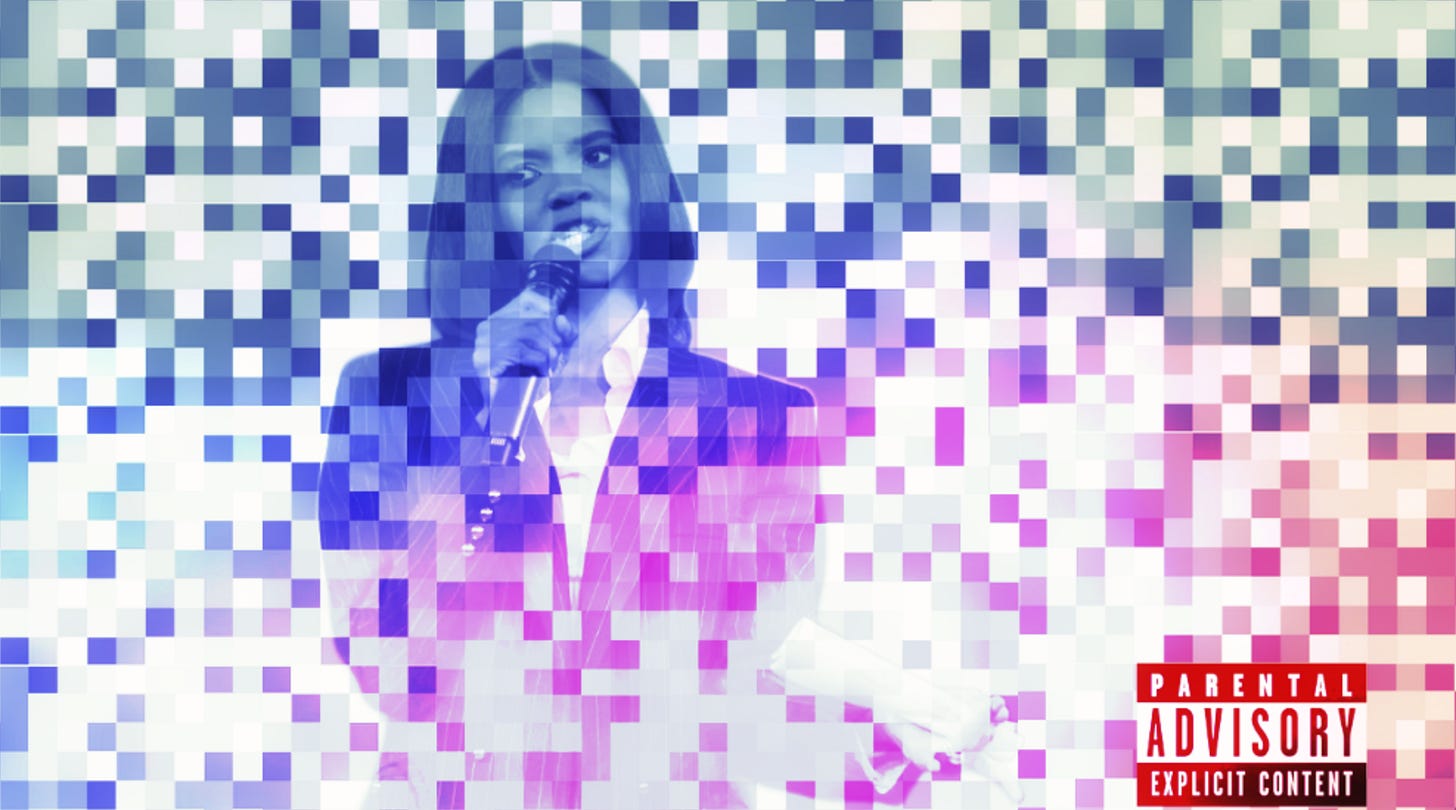The Cesspoolification of Culture as a Sign of Progress
A thriving culture can tolerate vulgarity, degeneracy, and stupidity
According to Sam Harris, scrolling Twitter is the equivalent of wading through a cesspool of pure derangement and depravity. It’s all unhinged screeds by neo-Nazis and graphic images of kids being killed. And it’s intentional: the algorithm has been fine-tuned to feed us rage-inducing clickbait and bullshit.
"If you've built an algorithm that preferentially boosts Candice Owens and boosts her more the dumber she gets, that's a choice. And it's a harmful one for our society,” Harris says.
But that’s not even the worst of it. According to Harris, what’s truly despicable is that many people (particularly Elon stans) determine this to be a good thing.
“Many imagine that this cesspoolification of culture represents progress,” Harris observes, adding with a mocking tone, “Unless my trending news is punctuated by videos of kids getting killed or black people committing violent crimes, the censors have won, right? Where is free speech!”
Let’s assuming Twitter really has become the hellscape Harris says it has. In my experience, it’s actually not nearly that bad, but let’s assume for a moment that it is.
On the one hand, Elon stans have lost the plot if they truly think Candice Owens needs to be algorithmically boosted or else free speech is in crisis. No one has a constitutional right to be able to post to any particular social media platform and certainly no one has a constitutional right to get their speech boosted by an algorithm.
But at the same time, contrary to Harris’s view, it’s arguable that widespread depravity on social media is, in fact, evidence of a thriving cultural. Social media is many things, but above all it is entertainment. Yes, social media can be used to consume and share real news. Yes, it can serve as a digital simulation of a town square (sort of). But even in the service of these high-minded purposes, our brains interact with social media as if it were purely, entirely entertainment.
Social media has turned us all into “dopamine addicts,” as the Guardian puts it. “Every spare second is an opportunity to be stimulated, whether by entering the TikTok vortex, scrolling Instagram, swiping through Tinder or bingeing on porn, online gambling and e-shopping.”
In other words, it’s not just that social media is entertainment, it’s an addictive, low-brow form of entertainment. Scrolling social media—from the brain’s perspective—isn’t like reading a Milan Kundera novel or listening to Beethoven. By its very nature, it’s much more like skimming through a tabloid magazine in a grocery store.
And this type of entertainment is what Sam Harris expects to not become a cesspool?
Note that social media doesn’t necessarily amplify depravity. Rather, it amplifies big personalities—people who are natural entertainers. Candice Owens is a great case in point. One look at her and you can tell she’s not a serious journalist. She’s attractive, flamboyant, hyperbolic, and narcissistic—she’s an entertainer. Getting an algorithm to boost her most over-the-top moments isn’t sinister. It’s good business. It’s the equivalent of a bookstore placing a large display of banned books right by the store entrance.
People complain about depravity whenever it shows its face in culture. Nudity and graphic violence were kept out of mainstream cinema (thanks to the Hays Code) till 1968. On television, there are the seven dirty words that basically still can’t be uttered on mainstream channels. And of course books have long been censored in various ways.
But in a free society, the pressure to give the people what they want generally wins in the end. And the people want uncensored entertainment.
A thriving culture lets people listen to vulgar and misogynistic rap music. It lets people blast the “satanic” songs of Black Sabbath. It encourages people to buy alcohol in theaters showing R-rated movies with gratuitous sex and graphic violence. It lets bookstores openly mock the idea that governments ever had the nerve to ban Lolita or Fahrenheit 451.
This isn’t to say there shouldn’t be guardrails. It’s in the best interest of a thriving culture to compromise on some things, like allowing strip clubs, just not next to grade schools. It’s also in the best interest of a thriving culture to know if and when certain types of entertainment are causing real harms that outweigh any benefits. If it could be shown, for instance, that all school shootings led back to a single video game, then it would be absurd to not ban that game immediately.
In the realm of social media, it seems like a safe call that foreign governments’ propaganda should be banned. Same with incitements to violence and child pornography. Phones should be banned in schools. Instagram should probably be age-gated so no one under 16 can have access.
But a thriving culture can tolerate vulgarity, degeneracy, and stupidity. Cultural progress is found in being open to the most subversive forms of entertainment of the day—whether it be the sexuality of Elvis Presley in the 1950s, the vulgarity of rap in the 1990s, the violence of video games in the early 2000s, or the stupidity of Candice Owens in 2024.




